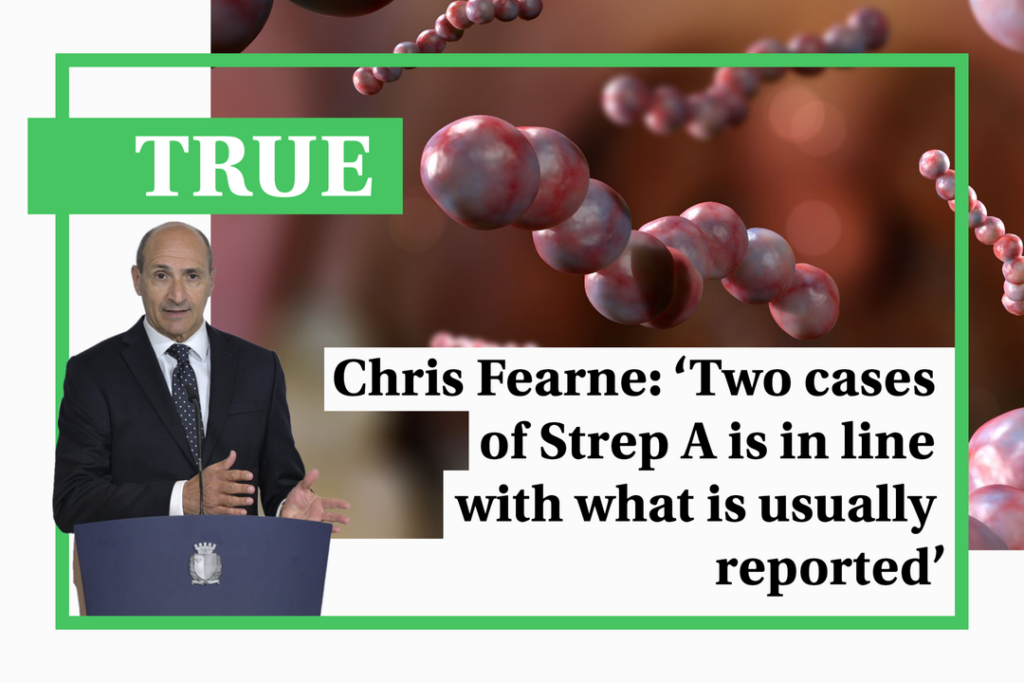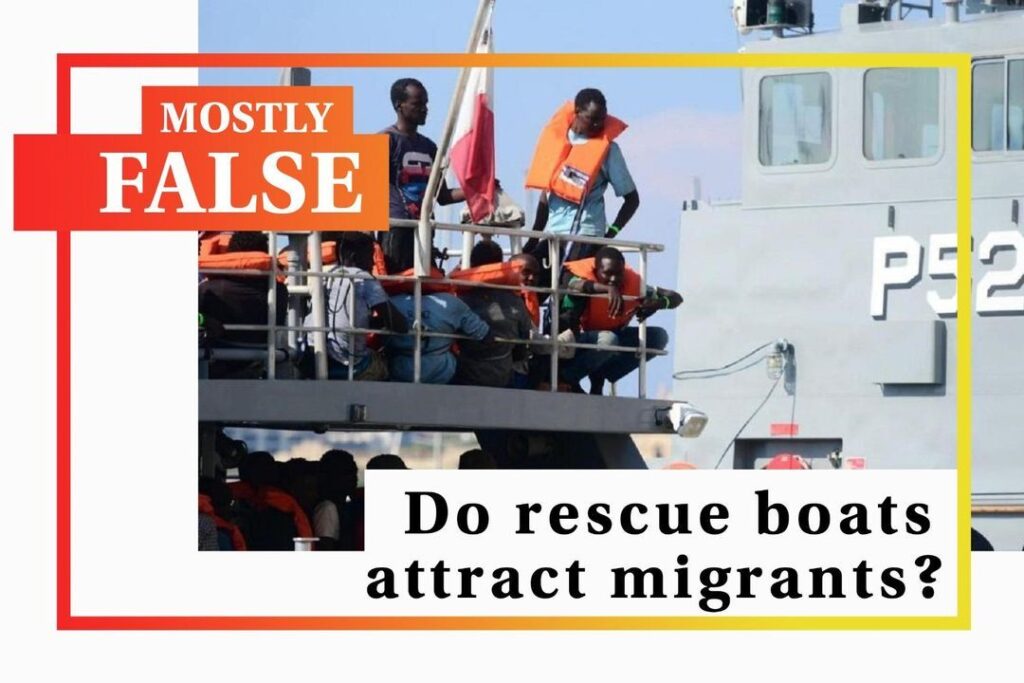Health Minister Chris Fearne on Wednesday confirmed that Malta has registered two cases of invasive Strep A this winter, claiming that this “is not more than what is usually reported in previous years”.
Is this true?
Data published by the Infectious Disease Prevention and Control Unit within the Health Ministry indicates this is correct.
A total of two cases of invasive Strep A were reported within the first six months of 2022 and a further two cases reported in each of 2020 and 2021, although data on fatalities throughout this period was not published.
A higher incidence of infection was reported in previous years, with a total of 34 cases throughout the period of 2015 to 2019, resulting in seven registered deaths. The highest surge of the infection was experienced in 2019, during which 12 cases were registered, including one death.
In total, seven deaths caused by invasive Strep A were reported in Malta over the past eight years, although health authorities have neither confirmed nor denied rumours about further deaths throughout this winter.
What is Strep A?
Group A Streptococcus, commonly known as Strep A, is a bacteria residing on the skin or throat. Most Strep A infections only lead to mild illness or no illness at all. In rare cases, the bacteria may infiltrate the body and enter the blood, muscle, lungs or other organs. These invasive cases of Strep A may lead to serious and even life-threatening illness. The data above highlights cases of invasive Strep A infections, not the more common and milder non-invasive infections.
Europe has experienced a surge in invasive Strep A infections over the past few months, with several countries reporting increased rates of infection particularly amongst children under the age of 10. In December, the European Centre for Disease Prevention and Control said the risk level of invasive Strep A for the general population remains low, with the increase in cases still being relatively low and not linked to a new strain of the bacteria.
The Times of Malta fact-checking service forms part of the Mediterranean Digital Media Observatory (MedDMO) and the European Digital Media Observatory (EDMO), an independent observatory with hubs across all 27 EU member states that is funded by the EU’s Digital Europe programme. Fact-checks are based on our code of principles.
Let us know what you would like us to fact-check or see our answers to Frequently Asked Questions about the service.





